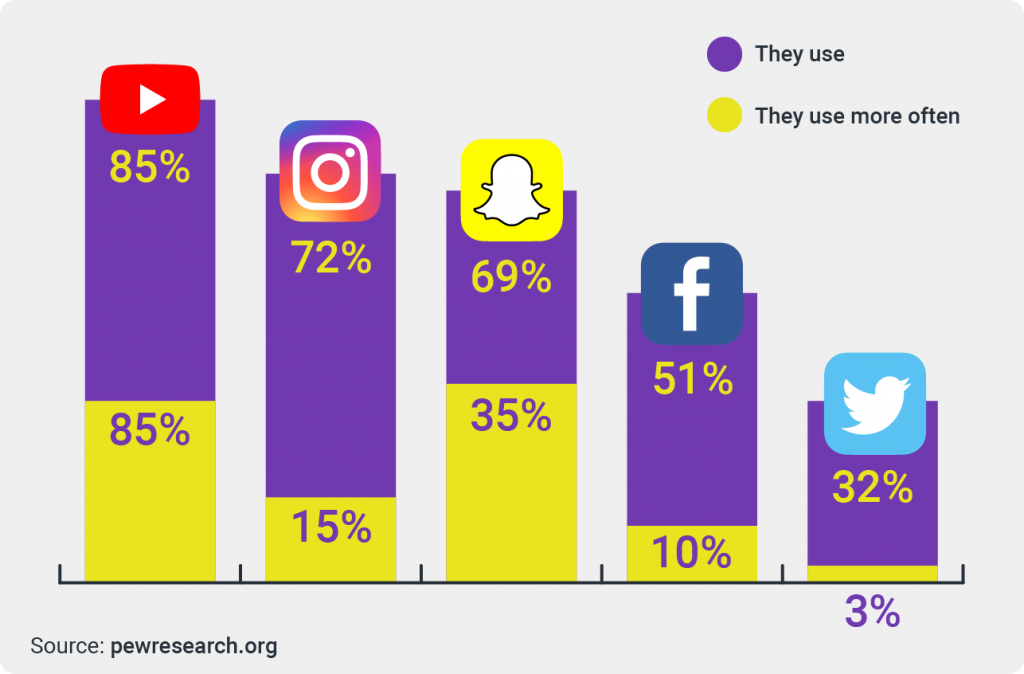Sometimes it’s hard to know how to choose the right tone or the right content. No matter how careful they are, brands find it difficult to please everybody. Finding the balance between hyperindividualization and messages that sound right to many different people is mandatory for every brand aiming to connect with Gen Z consumers. However, knowing what GenZ expects from brands is key to succeeding in that mission. Here is the ultimate guide!

Gen Z thinks brands should be brands
Even though brands are deeply integrated in Gen Z lives, they are still brands. Not friends – brands. In other words, too much effort spent trying to be sympathetic could be perceived as a lack of authenticity. Gen Z values brands that don’t pretend to be something else and that stick to their own DNA and their own values, no matter what happens.
Ignoring what’s going on in the world is as bad as showing exaggerated concern. So tone and message should be moderated and adjusted to reality and expectations.
Gen Z values ethics
Gen Z is fine with brands having their own interests, but they don’t approve of trying to achieve aims at all costs. Instead, they value responsibility and positive contributions to society. They see brands as important agents within socio-economic structures.
Ethics and values are something so important to Gen Z that they demand it from brands as they would from any individual. In fact, most GenZ Americans not only support the Black Lives Matter movement, but also expect brands to do the same. According to YPulse, 59% of Gen Z expect brands to make a statement on social media, 58% also want them to donate, and 51% think that brands should amplify the voices of black leaders.
Consistency
People choose a brand because they like it better than their competitors or because it offers something different. Even if we are talking about two brands that sell sports shoes, for instance, the way they do it, their message, the design of their products, the brand values, etc., are different. That’s why we all choose one brand over another, right?
We also like it when a brand adapts to the times but retains its identity. This is what GenZ demands. No matter how much your brand evolves and changes, the core values, the identity, have to be consistent because this was the reason we chose the brand and why we want to remain loyal to it.
Avoid over-marketing
It’s not about quantity, but quality. Brands do not need to repeat their messages a million times. It’s far more effective to find a striking message. In other words, connecting with Gen Z is not about insisting, but about understanding what they need from brands.
During the Covid-19 crisis, for example, the pandemic was used excessively to increase visibility. It’s fine to know that a brand is present and responding, but maybe Gen Z (or anyone!) didn’t need a newsletter from a shop they hadn’t visited in three years hoping they were safe. Rather, they just wanted to see initiatives that postively contributed to society. Simply informing people about how to be safe would have been good enough.
Identity matters to Gen Z
Everyone is different and has different needs. Brands need to address identity from many angles. Understanding and respecting uniqueness means supporting diversity – not only in communication, but also in action.
In other words, don’t talk about gender balance, but make it happen in your company. Gen Z really cares about social and ecological issues. Their worries are part of their identity, too. They are individualistic enough to build an entire Instagram brand just around their personality. But they are still part of a community.
Hyperindividualized advertising is compatible with a socially responsible attitude. And since people’s identity matters, so does brand identity. Gen Z demands that brands support their identity without changing the brand identity.
Gen Z – Digital and social

GenZ’s experience of the world is fundamentally digital. The opposition of digital vs. analog does not really exist for them – or for anyone in the world anymore. The only difference is that Gen Z has never lived in a world without digital
Also, Gen Z was born into an already totally globalized world. This translates into global virtual communities. Social media is not just a way to praise values and present oneself to the world. It is a way to interact with others and build relationships that are as intense and real as their parents.’
Gen Z expects to interact with your brand this way and they expect to do it on social media. Want to learn more about effective social media content? Check out this post.
How can brands reach Gen Z?
Brands need to hold the same values as Gen Z. That is, providing authenticity, responsibility, contributing positively to the world and being transparent.
What are the most used apps in Gen Z?
YouTube, Instagram and TikTok are the most used social media apps among US teens.










